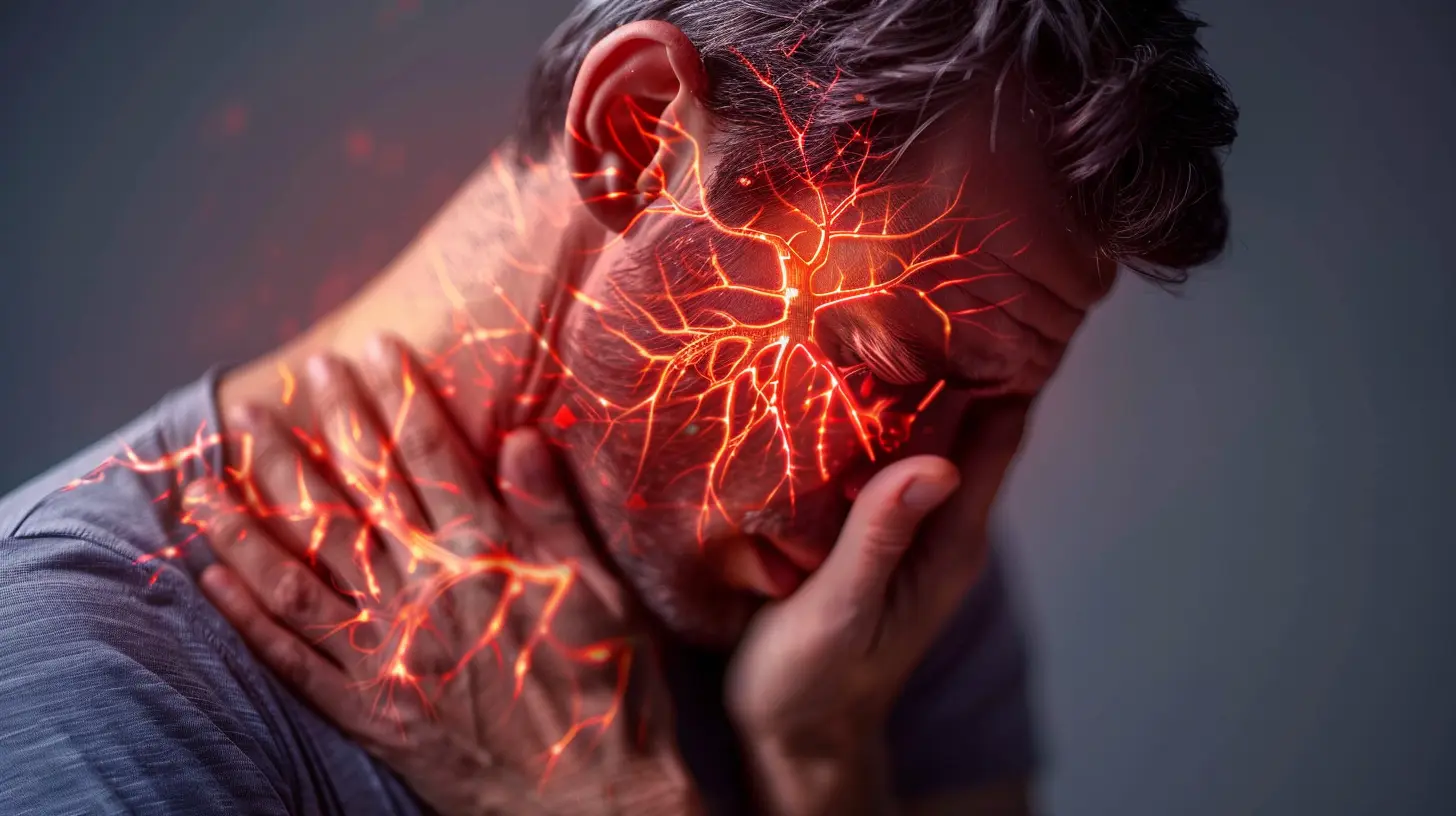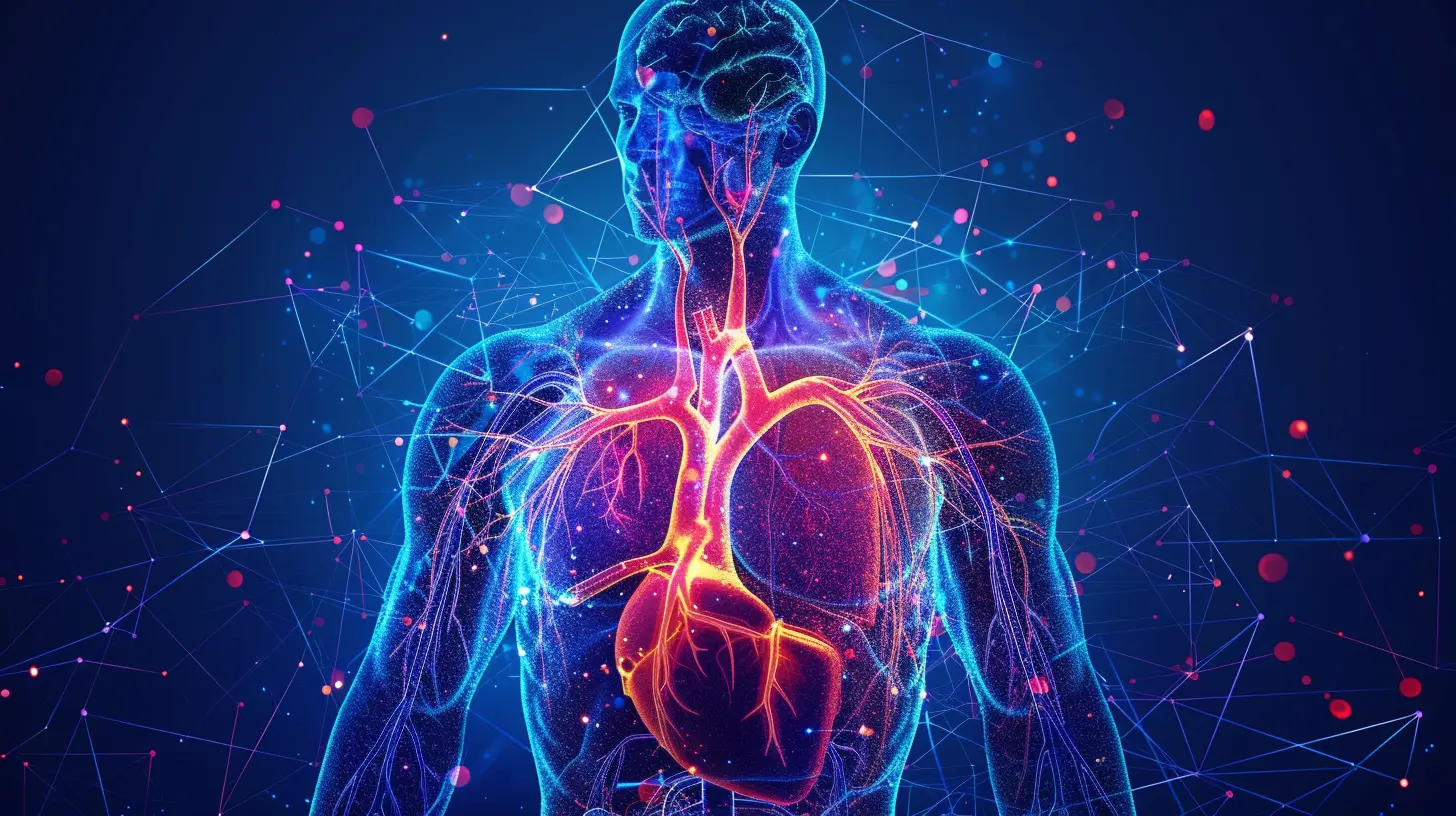The Connection Between Men's Health and Heart Disease
3 October 2025
When we talk about men’s health, heart disease is a topic we can’t afford to ignore. It’s the elephant in the room that many guys either don't know about or choose not to think about—until it’s too late. But here’s the thing: heart disease doesn’t need to be a ticking time bomb. It’s something we can manage, even prevent, once we understand the deeper connection between men’s overall health and what’s going on with their hearts.
So, grab a cup of coffee, settle in, and let’s walk through this together. You might be surprised by what you'll learn—and it could just save your life or someone you care about.
Why Men Are at Higher Risk for Heart Disease
Here’s some straight talk—men are statistically more likely to develop heart disease than women, especially at a younger age. But why is that?1. Hormones Play a Role
Estrogen, the hormone that women produce more of, has a protective effect on the heart. Until menopause, women are somewhat shielded. Men, on the other hand, don’t have that buffer. Testosterone levels influence fat distribution and cholesterol levels, both of which impact heart health.2. Men Tend to Take More Risks
Let’s be honest, guys. We often take the “I’m fine” approach to health. Whether it's skipping doctor visits, brushing off warning signs, or engaging in riskier behaviors like smoking and heavy drinking, these lifestyle habits can add up over time.3. Higher Rates of Hypertension in Men
High blood pressure is a major red flag when it comes to heart disease. Many men walk around with high blood pressure and don’t even realize it. Why? Because it often has no symptoms—it’s a silent killer.
How Health Habits Influence the Heart
Now that we know men are more at risk, let's look at the habits that set the stage for heart disease.1. Diet Choices Matter—A Lot
Ever heard the saying, “Abs are made in the kitchen”? It’s not just about six-packs; your heart also takes a hit when you load up on processed foods, trans fats, and excessive sodium. A typical “manly” diet—think burgers, fries, and lots of red meat—isn't doing your cardiovascular system any favors.👉 Shift toward heart-healthy foods like salmon, leafy greens, nuts, and whole grains. It’s not about eating like a rabbit—it’s about fueling your engine right.
2. Lack of Physical Activity
Let’s be real: desk jobs, long commutes, and streaming marathons make it easy to skip exercise. But the heart is a muscle—it needs regular workouts just like your biceps.Even 30 minutes of brisk walking a day can do wonders for blood pressure, cholesterol levels, and overall heart health.
3. Stress—The Silent Saboteur
You might not realize it, but chronic stress can be just as harmful as a poor diet. Financial pressure, job stress, and even relationship issues can cause your body to release hormones like cortisol that raise blood pressure and inflammation—two of the key culprits behind heart disease.Meditation, deep breathing, or even just talking things out with a friend can help. Don’t bottle it up—it only builds pressure.
Common Heart Disease Types Affecting Men
Heart disease isn’t one-size-fits-all. Several conditions fall under the umbrella—let’s break them down.1. Coronary Artery Disease (CAD)
This is the big one—the most common type of heart disease. It happens when plaque builds up in the arteries, reducing or blocking blood flow to the heart.2. Heart Attack (Myocardial Infarction)
A heart attack is what happens when blood flow gets blocked completely. Without oxygen, parts of the heart muscle start to die. Prompt treatment is critical to reduce long-term damage.3. Heart Failure
Heart failure doesn’t mean your heart stops. It means it can’t pump blood as well as it should. This can develop gradually due to long-standing high blood pressure or after a heart attack.4. Arrhythmias
This refers to an irregular heartbeat. Some arrhythmias are harmless, but others can be life-threatening and need immediate attention.
Warning Signs Men Should Never Ignore
Here’s the truth: men often delay getting help. But recognizing early warning signs can mean the difference between life and death.- Chest pain or discomfort
- Shortness of breath
- Sweating unexpectedly
- Dizziness or lightheadedness
- Pain in the jaw, neck, or back
- Unusual fatigue
These aren’t just “getting older” symptoms. They’re your heart waving a red flag.
Unique Challenges Men Face in Heart Health
So, what’s standing in the way of better heart health for men?1. Stigma Around Seeking Help
A lot of guys think asking for help equals weakness. Spoiler alert: it doesn’t. It shows strength and self-awareness. Regular check-ups can catch issues before they spiral.2. Lack of Preventative Care
Men are less likely than women to engage in preventative healthcare. That means fewer cholesterol checks, fewer blood pressure screenings, and less early detection.3. Misconceptions About Heart Disease
Many men think heart disease is only for the “old guys.” The reality? It can—and does—hit men in their 30s and 40s, especially those with poor health habits.How to Protect Your Heart (Without Turning Your Life Upside Down)
Now for the good news—there’s plenty you can do to lower your risk, and it doesn’t require drastic changes overnight.1. Eat More of the Good Stuff
We're not talking about giving up all your favorite foods. Just aim for balance. Include more:- Fruits and veggies
- Whole grains
- Lean proteins (think chicken, fish, beans)
- Healthy fats (like olive oil and avocados)
Cut back (not cut out) on:
- Processed snacks
- Sugary drinks
- Red meats
2. Move Your Body
You don’t need to become a gym rat. Start with 20–30 minutes of walking, biking, or even dancing. Just get your heart rate up. Make it fun so it sticks.3. Quit Smoking and Cut Back on Alcohol
This one’s a biggie. If you smoke, seek help to quit—that’s non-negotiable. As for drinking, moderation really is key. Excess drinking can raise blood pressure and lead to weight gain, both of which strain your heart.4. Get Regular Checkups
Just like a car, your body needs routine maintenance. Check your blood pressure, cholesterol, and blood sugar levels annually. These numbers are like your heart’s report card.5. Manage Stress
We're not saying you have to start meditating on a mountaintop (unless that’s your thing). But find what calms you—whether it’s music, hobbies, or even taking five minutes to just breathe.The Emotional Side of Heart Health
Let’s not forget about mental health. Anxiety, depression, and loneliness are all linked to heart disease. Men often suppress emotions, but holding everything in isn’t healthy—it’s like shaking a soda bottle and expecting it not to explode.Talk to someone. It could be a friend, a therapist, or a support group. Emotional wellness is part of the heart health equation.
Heart Health and Aging: What to Watch For
As men age, the risk of heart disease increases. But aging doesn’t have to equal decline. With the right habits, you can age like fine wine, not spoiled milk.Key things to keep an eye on after 40:
- Cholesterol levels
- Blood sugar control
- Blood pressure
- Waist size (yep, that matters too)
Think of your 40s and 50s as the perfect time to reset. It’s never too late to start.
Final Thoughts: It's All Connected
Your heart doesn’t operate in a vacuum. It’s directly affected by your diet, stress levels, exercise habits, sleep quality, and even your relationships. Men’s health and heart disease are deeply intertwined, and the earlier you make health a priority, the better your odds of avoiding heart troubles later on.So, don’t wait for a wake-up call. Take the wheel now. Your heart—and your future self—will thank you.
all images in this post were generated using AI tools
Category:
Mens HealthAuthor:

Eileen Wood
Discussion
rate this article
1 comments
Cadence Matthews
Great insights! Men's health is vital!
October 16, 2025 at 2:28 AM

Eileen Wood
Thank you! I appreciate your feedback and completely agree—men's health is crucial for heart disease prevention.


